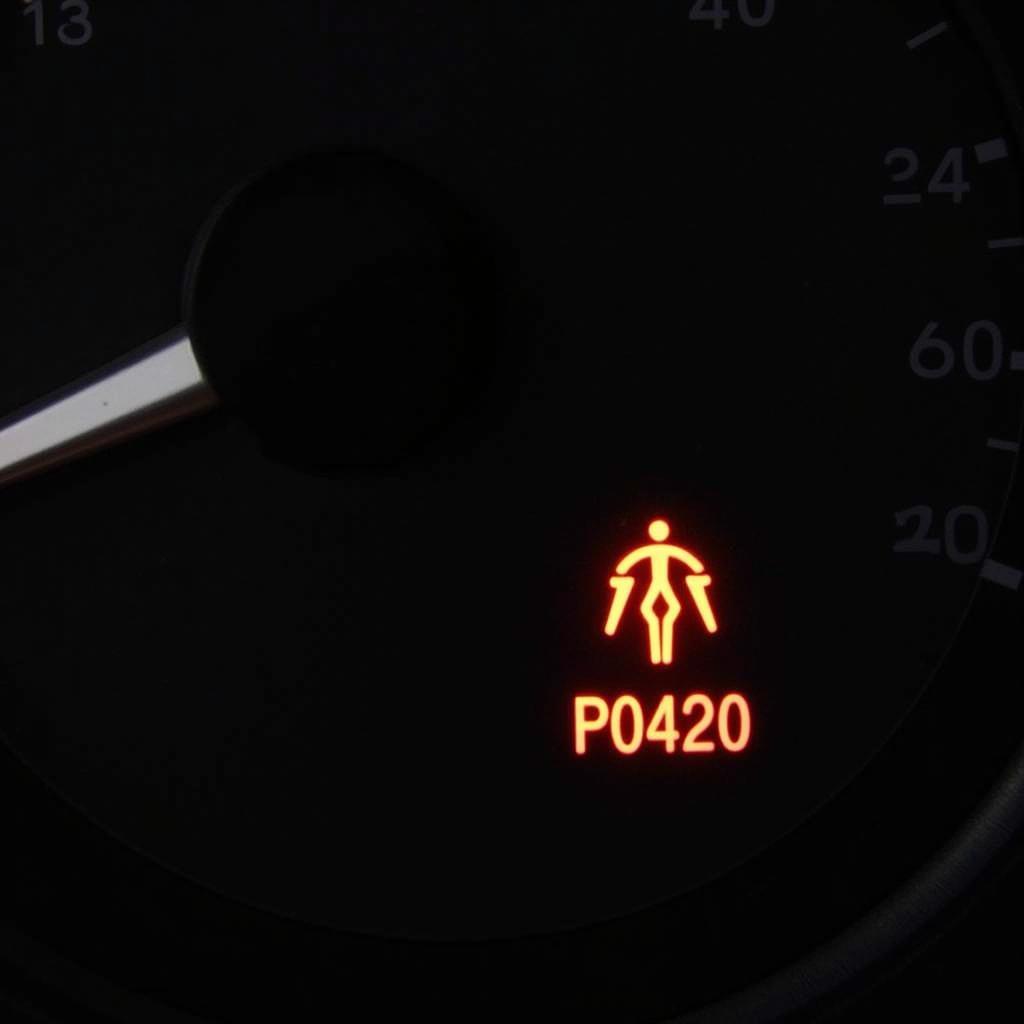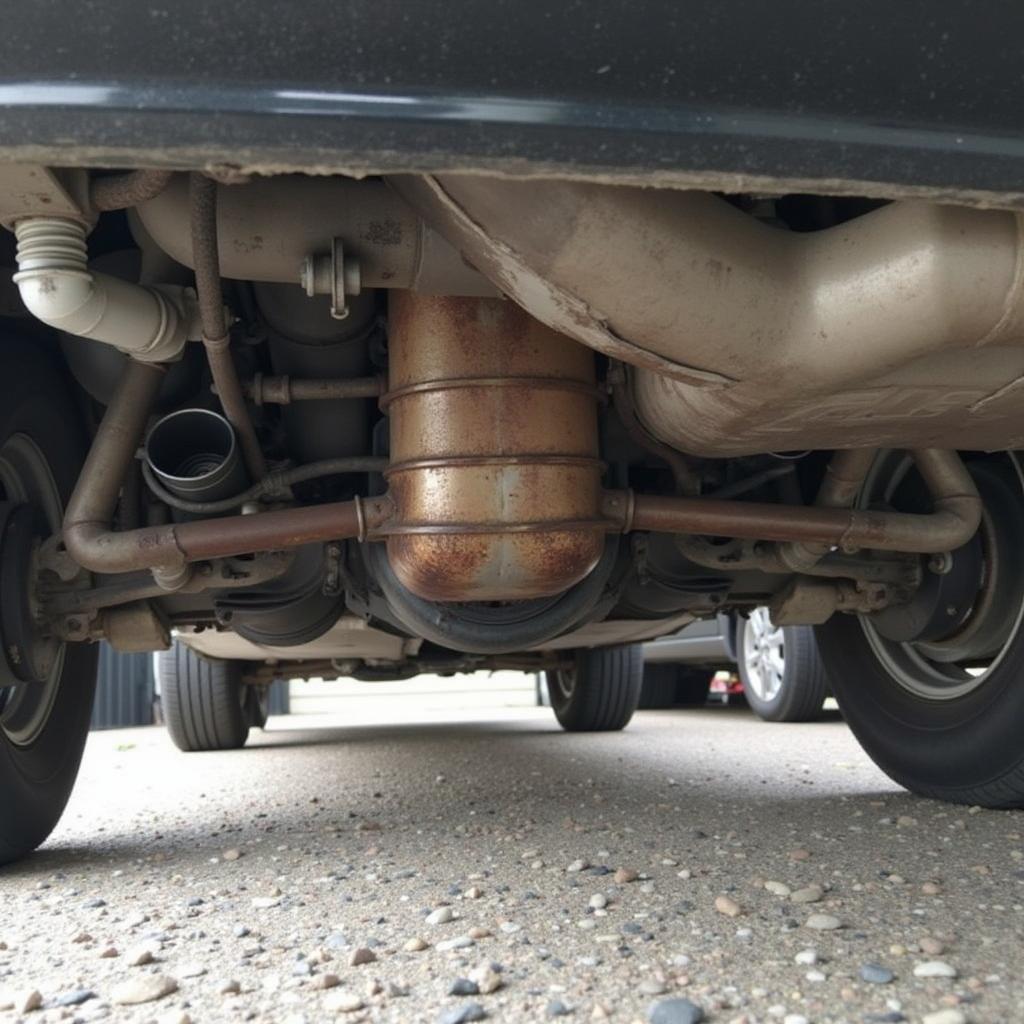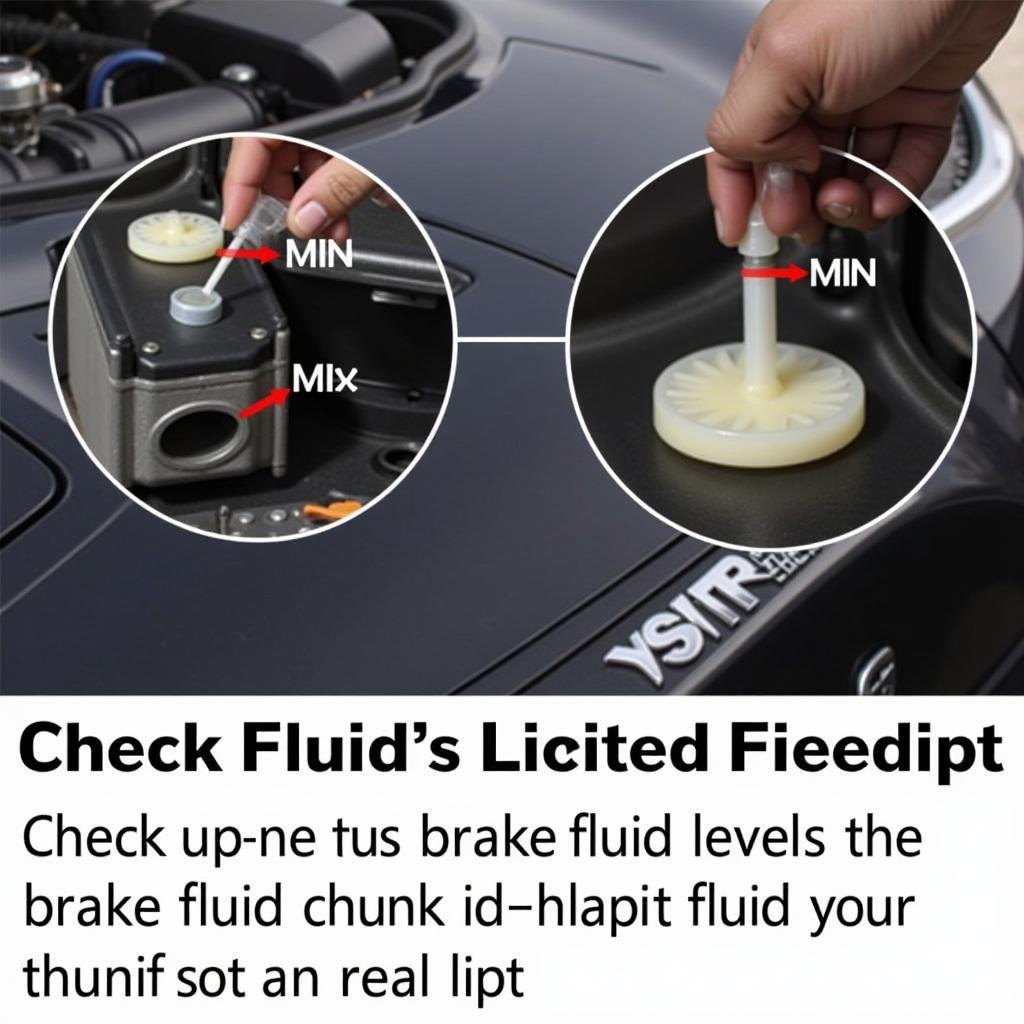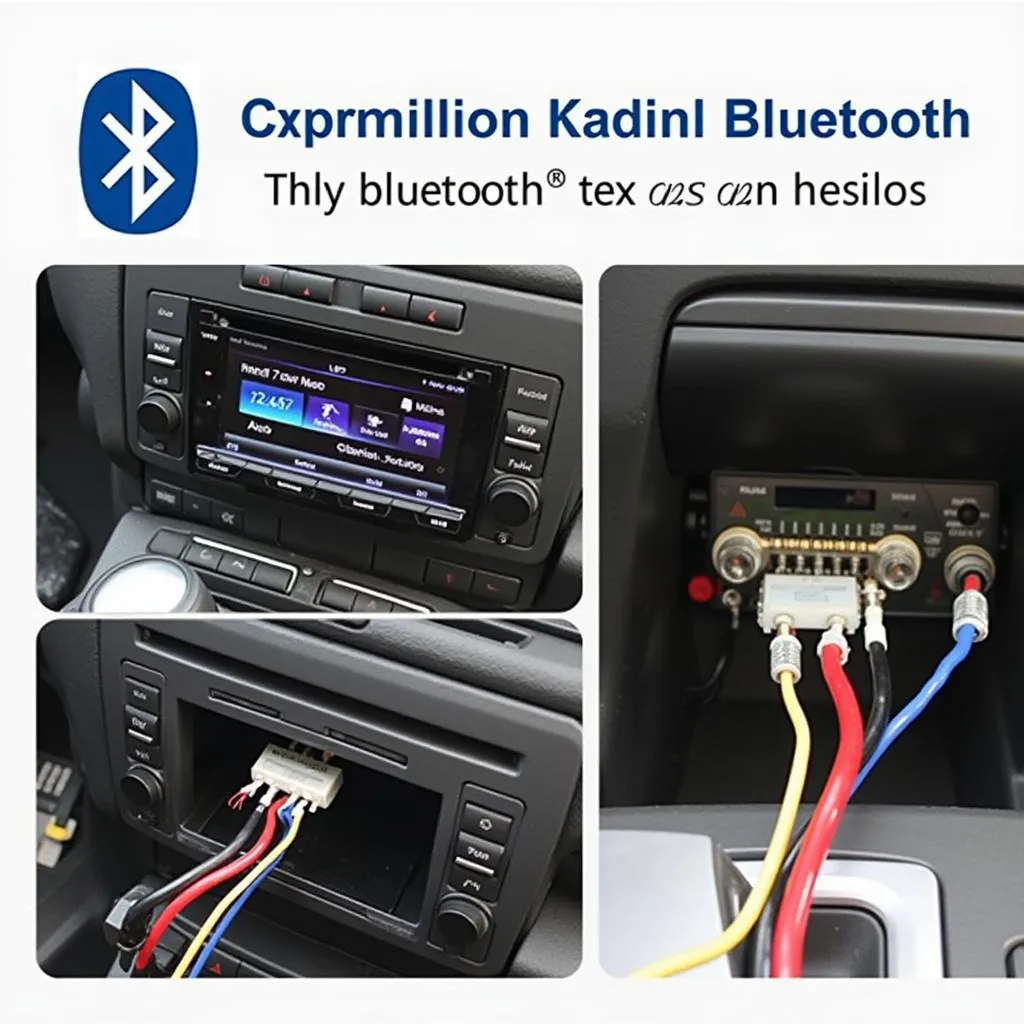A P0420 code flashing on your 2011 Subaru Outback’s dashboard, accompanied by a glowing brake warning light, can be a recipe for concern. This combination often points to an issue with your catalytic converter system, a crucial component for emissions control. While this might sound intimidating, understanding the problem is the first step towards a solution.
Understanding the P0420 Code in Your Subaru Outback
The P0420 diagnostic trouble code specifically indicates that your Subaru Outback’s Engine Control Unit (ECU) has detected below-par performance from the catalytic converter. This usually translates to the catalytic converter not efficiently converting harmful exhaust gases into less harmful ones, directly impacting your vehicle’s emissions and potentially indicating a malfunctioning catalytic converter.
The Brake Warning Light Connection: Why Is It On?
Now, you might be wondering, what’s the brake warning light got to do with all of this? While seemingly unrelated, the illumination of this warning light alongside the P0420 code could suggest a couple of things:
- Emissions System Fault: Your Outback’s system might be designed to trigger the brake warning light as a secondary alert for a critical emissions issue, prompting you to seek immediate attention.
- Oxygen Sensor Malfunction: The brake warning light can sometimes activate due to a faulty oxygen sensor, a component closely tied to the catalytic converter’s operation.
 Subaru Outback Brake Warning Light
Subaru Outback Brake Warning Light
Common Causes of P0420 in a 2011 Subaru Outback
Several culprits could be triggering the P0420 code and the brake warning light in your Outback. Let’s break down the most common ones:
- Failing Catalytic Converter: This is the most likely offender. Over time, the internal honeycomb structure of the catalytic converter can wear down or become clogged with debris, reducing its efficiency.
- Faulty Oxygen Sensors: Oxygen sensors upstream and downstream of the catalytic converter monitor exhaust gas flow. A malfunctioning sensor can send incorrect data to the ECU, triggering the code.
- Exhaust Leaks: Any leaks in your Outback’s exhaust system, particularly before the catalytic converter, can disrupt exhaust gas flow and lead to an inaccurate reading.
- Engine Misfires: Unburnt fuel from engine misfires can damage the catalytic converter, leading to its premature failure.
 Subaru Outback Catalytic Converter
Subaru Outback Catalytic Converter
Diagnosing the Problem: Steps To Take
Before jumping to conclusions, it’s essential to diagnose the problem accurately. Here’s a step-by-step guide:
- Read the Codes: Start by using an OBD-II scanner to confirm the P0420 code and check for any other accompanying codes.
- Inspect for Leaks: Visually examine your exhaust system for any noticeable holes, cracks, or loose connections, paying close attention to the area around the catalytic converter.
- Check the Oxygen Sensors: Inspect the wiring and connections of the oxygen sensors. Consider testing the sensors’ functionality using a multimeter if you’re comfortable with basic electrical work.
- Consider Engine Performance: Reflect on your Outback’s recent engine performance. Have you noticed any misfires, decreased fuel efficiency, or a loss in power? These could indicate a problem contributing to the P0420 code.
Seeking Professional Help: When and Why?
While some DIY enthusiasts might be comfortable tackling minor repairs, it’s important to acknowledge when professional help is necessary. Given the complexity of the catalytic converter system and the potential for further damage, seeking expert assistance is recommended if:
- You’re uncomfortable working with car parts or lack the necessary tools.
- The diagnosis reveals a faulty catalytic converter, as replacement requires specialized knowledge.
- The problem persists even after addressing potential causes like exhaust leaks or oxygen sensor issues.
In Conclusion: Addressing the P0420 in Your Outback
A P0420 code in your 2011 Subaru Outback, especially alongside a lit brake warning light, signals a potential issue with your emissions system, likely involving the catalytic converter. While this might seem daunting, understanding the possible causes and taking appropriate diagnostic steps can help you address the issue effectively. Remember, seeking professional help is always a wise decision when dealing with complex car repairs to ensure the longevity and optimal performance of your Subaru Outback.


